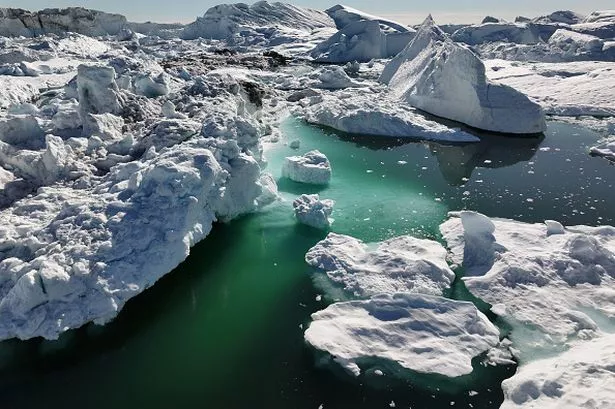Islamabad, Feb 20: A recent global study published in Nature has revealed alarming new insights into the rapid melting of the world’s glaciers, posing significant threats to sea levels and freshwater availability.
Using data from satellite and field measurements, researchers found that ice loss has surged dramatically in the past decade. Between 2012 and 2023, glaciers lost 36 percent more ice compared to the previous period from 2000 to 2011. This acceleration is expected to continue, with potentially devastating consequences for coastal regions and freshwater supplies.
Professor Michael Zemp from the University of Zurich, a co-author of the study, described the findings as “deeply concerning” but not surprising. The study highlights those smaller glaciers, particularly in vulnerable regions, are melting at an unprecedented rate, with many at risk of disappearing entirely before the century’s end.
“We are now facing a much greater rise in sea levels than previously estimated,” Zemp stated. He also pointed out that many regions, such as Central Asia and the central Andes, depend heavily on glacier-fed water systems, making the situation even more critical.
Since 2000, global glaciers have lost around 5 percent of their total volume, with some areas experiencing more severe losses. In Antarctica, ice volume has decreased by 2 percent, while the European Alps have seen a staggering 40 percent reduction. The study estimates that an average of 273 billion tonnes of ice is vanishing each year—equivalent to the world’s water consumption for the next three decades.
Read More:
SECP Mandates Actuarial Function for Insurance Risk Management
Conducted in collaboration with the World Glacier Monitoring Service (WGMS), the University of Edinburgh, and the Earthwave research group, the study serves as a crucial benchmark for tracking global ice loss. Scientists stress that continued monitoring is essential to understanding the full impact of climate change on glacier retreat.
Professor Martin Siegert of the University of Exeter, who was not involved in the research, warned that this trend could have profound implications for Antarctica and Greenland’s ice sheets. “The rate of ice loss is now six times faster than it was 30 years ago. If this continues, we won’t be measuring sea-level rise in centimeters, but in meters.”
Zemp emphasized the urgent need for action, stating that reducing greenhouse gas emissions is the only way to slow glacier loss. “Every fraction of a degree of warming we can prevent will save lives, protect ecosystems, and mitigate economic damage,” he urged.
With glaciers melting at an accelerating pace, experts agree that immediate and sustained climate action is necessary to protect future generations from the devastating consequences of global ice loss.
